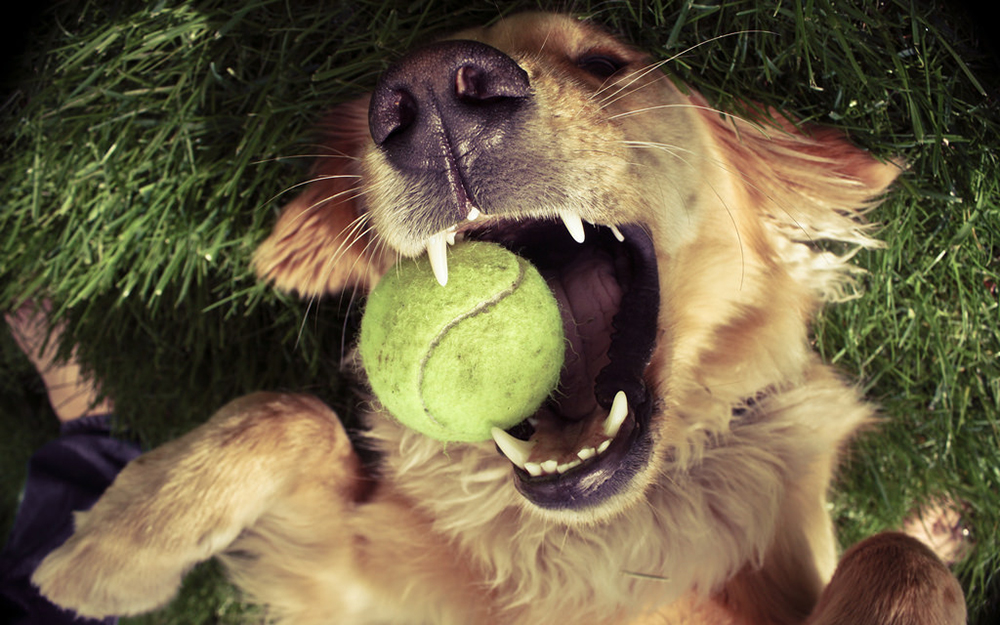
BY JANET McAFEE
Charlie, my brother’s Shepherd mix dog, died on the operating table during surgery after swallowing part of a rubber ball. The object ruptured his esophagus. Charlie’s family is heartbroken over the loss of their 3-year-old dog, and wondering what they could have done differently. What can pet owners do to prevent such a tragedy?
Symptoms that indicate your dog has an obstruction from swallowing something are vomiting, constipation, abdominal pain, fever, lethargy, loss of appetite and blood in the feces. If your pet has these symptoms, it’s important to get the animal in for veterinary treatment as soon as possible, particularly if you know he has a tendency to chew and swallow foreign objects. Fortunately, most cases are not fatal, but they can be distressful for you and your pet.
Lillian Roberts, DMV, sees this problem in her practice at Country Club Animal Clinic in Palm Desert. Dr. Roberts advises, “The most common thing dogs swallow are toys of an inappropriate size or toys that are worn out, and then they can’t pass them or vomit them up. We also see cases of dogs eating things out of the trash or clothing left on the floor. The breeds most likely to ingest foreign objects are Labs and Golden Retrievers, although I had one 14-year-old Yorkie patient who needed carpet fibers removed from his stomach.” Dr. Roberts noted that even bones can be a problem if they splinter. She recommends Kongs as the safest alternative. These can be filled with a dab of peanut butter or pet food.
Toys that are too small can easily be swallowed or become lodged in their throats. Discard broken or torn pet toys. Remove parts of pet toys that can easily be eaten such as ribbons, strings, and artificial eyes. Check with your vet about what chew toys are appropriate for your dog. The Humane Society of the United States recommends very hard rubber toys such as Nylabone and Kong products.
Feline patients may have ingested such objects as string, thread, and ribbon. During the Christmas season, tinsel dangling off the tree may tempt your cat. Cats have been known to consume sewing thread along with the attached needle.
For a variety of reasons, some dogs are habitual chewers and you must “dog proof” your home and yard. Keep objects like pens, shoes, eyeglasses, remote controls and dirty laundry out of reach. Keep trash cans covered or out of reach. One of the most common things Dr. Roberts has removed from dogs’ digestive tracks are tennis balls. Dogs love to play with tennis balls, but they can be hazardous if swallowed.
Puppies, like human toddlers, explore the world by putting things in their mouths. Chewing facilitates teething and makes sore gums feel better. Check with your vet and specialty pet shops to find appropriate things for puppies to chew.
According to local dog trainer Sandy Miller, some dogs chew out of boredom. Sandy states, “Obedience training will improve your dog’s behavior in many areas, including chewing and digging. When a dog has rules and structure, his behavior improves.” One of the basic commands is teaching your dog to “leave it” and release a foreign object, whether it’s a valuable possession or a chunk of plastic in the back yard. Sandy stresses that, “dogs need to be part of the family and get enough human interaction. Dogs left alone for long periods of time are more likely to chew and destroy things out of frustration.”
Both Sandy Miller and Dr. Roberts recommend Bitter Apple spray, a pet repellent available at pet specialty stores. This product can be sprayed on objects and surfaces you want the dog to stay away from.
Give your dog plenty of “people time” and physical and mental exercise. A tired dog is less likely to get into trouble. Take him on car trips and on interesting walks in different neighborhoods. Chewing behavior may be related to separation anxiety as well as boredom. Don’t ban your dog from all play with toys. They can benefit greatly from a game of fetch or Frisbee, and the bond between you will increase through these games.
Country Club Animal Clinic can be contacted at (760) 776-7555. For assistance with dog behavior problems, including chewing, trainer Sandy Miller can be reached at (760) 360-4085.








































